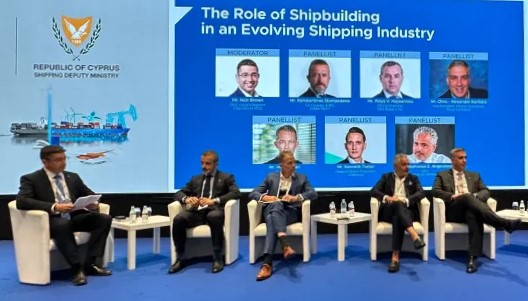The recent arrest by the UK naval vessel RFA Fort Victoria of 14 Somalis on a hijacked fishing boat in possession of rocket-propelled grenades, assault rifles and explosives put the UK government on the spot — perhaps unfairly given the recent successes of the Royal Navy and other navies in disrupting pirate motherships, pirate activities and the political leadership the UK, particularly, has shown.
The latest arrests, however, mean up to 46 Somali pirates are now being held by US, UK, Danish, Italian and Spanish warships operating in the Indian Ocean, evidence of the new vigour being shown by the naval forces to contain Somali piracy.
Spain’s judicial authorities will prosecute the six Somali pirates who attacked the EU Navfor flagship ESPS Patino on 12 January. The UK is said to be talking with the Seychelles about transferring the 14 pirates there for prosecution.
Giles Heimann, chairman of the steering committee of the shipping industry’s SOS SaveOurSeafarers campaign, observes that many of these suspected pirates may be released because seemingly no country is willing to prosecute them.
Not enough countries are actively contributing to the fight to counter Somali piracy — especially those with interests in shipping. The shipping industry greatly appreciates the efforts of those countries whose governments have stepped up to their responsibilities to provide freedom of the seas and have deployed naval assets in the Indian Ocean.
SOS has been calling for more robust action to counter the threat of motherships and is grateful that a number of states are successfully disrupting pirate operations, helping to reduce the number of attacks and thereby safeguarding many seafarers. The naval successes in catching pirates are seriously negated if these pirates are not arrested, prosecuted and incarcerated.
The governments involved in capturing these 46 pirates have been pursuing options for regional prosecution, putting massive pressure on countries bordering the Indian Ocean to accept those being held.
The problem, we are told, is that Kenya and the Seychelles, which have tried suspected pirates in the past, are unwilling to take the latest suspects because their court systems are overloaded with piracy cases.
If the international community will not act, relying instead on an active few, many captured pirates may be released. This shows a lack of respect for the military personnel and the shipping community who are taking effective action, and for the brave seafarers who crew the world’s fleet.
So given the current situation, why not commit these people to trial in the US, UK, Denmark, or in other European countries involved, rather than trying to arrange regional prosecutions?
Spain and the Netherlands, for instance, have in the last 12 months chosen to prosecute a number of people suspected of piracy off Somalia.
“Why not other countries too?” says Mr Heimann. “Is it the cost of trials or the quality of the evidence? Is it the cost of imprisonment? Is it the fear that these people might ultimately seek political asylum? Or an alleged lack of legal framework to prosecute modern day piracy-related crimes?”
SOS recently welcomed the UK House of Commons Foreign Affairs Committee’s report Piracy off the coast of Somalia.
Although prosecution in local courts is the preferred option, the committee’s report stated that there was no legal reason preventing the UK proclaiming jurisdiction over suspected pirates and trying pirates in UK national courts, if no other state was willing to do so.
More than £11m ($17.3m) is being spent to build and refurbish prisons and courts in Kenya, the Seychelles and northern Somalia. The work may not yet be complete, but why can’t those tried in courts in Europe and further afield, found guilty and sentenced to imprisonment transfer later to local prisons as soon as the facilities are ready?
“The shipping industry finds the release of pirates who have been caught red handed, when there are viable options to prosecute them, extremely difficult to understand. It seemingly makes a mockery of the investment made in providing the military assets to deter and disrupt the pirates,” says Mr Heimann.
“Essentially, governments need to display far greater political will and resolve.”
The UK government will soon host the London Conference on Somalia including a session titled Confronting Terrorism and Piracy.
The SOS campaign hopes that the government will take this opportunity to set an example that other governments might follow, rejecting the ‘catch and release’ policy that has caused so much embarrassment, and showing the way to the whole international community.
Doing so would continue its current excellent leadership.
SOS SaveOurSeafarers brings together 30 organisations to raise awareness of the human and economic cost of piracy based on approaches to politicians and industrial leaders at the highest level.
The group, which launched in March 2011, aims to resolve the piracy problem off Somalia, to see piracy deterred, defeated and eradicated and to stop seafarers being tortured and murdered. http://www.saveourseafarers.com

